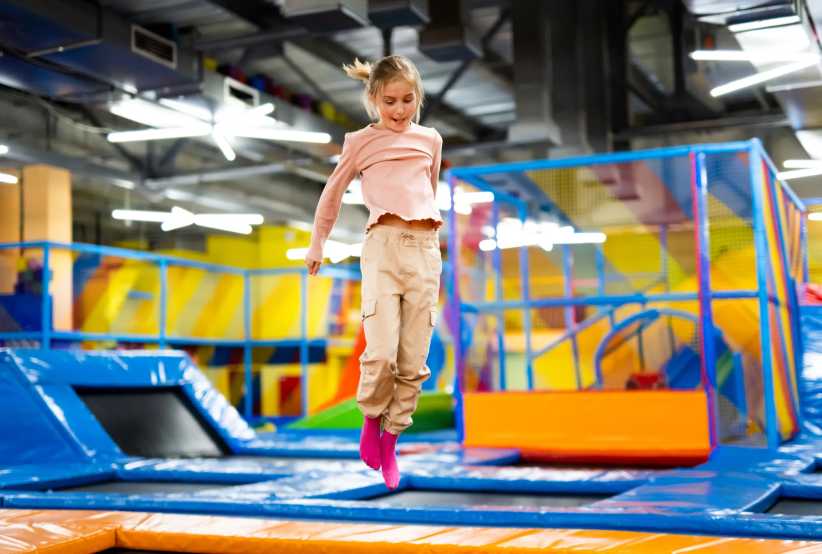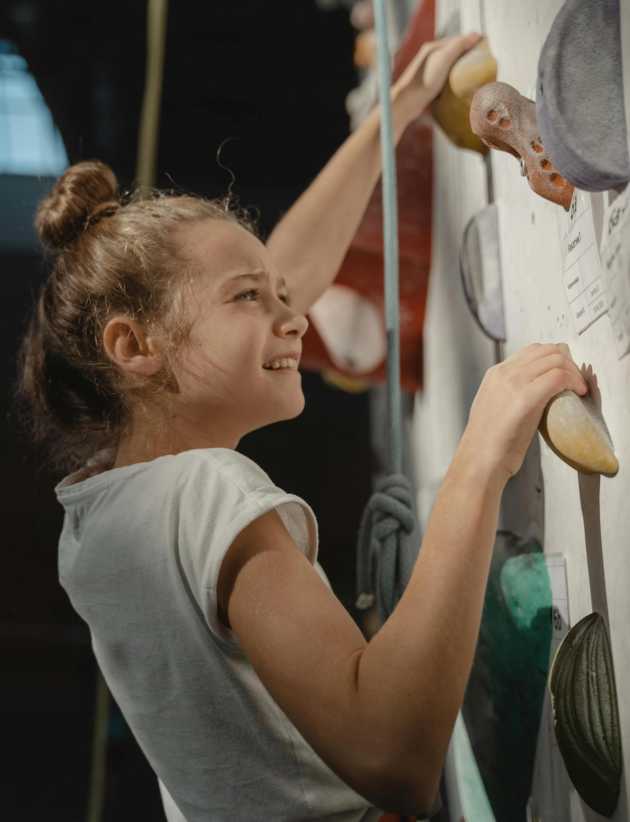Bouncing
off the walls by day and scheming to nudge back bedtime by night, children have
boundless energy that can exhaust many parents. But there’s a perfect place
just for these spirited kids at Super Soccer Stars, a sports program abuzz with
love for sports and play.
With
bright blue walls and an artificial turf frequently strewn with rainbow-colored
cones, the Super Soccer Star field on the Upper West Side
channels a bright and cheerful children’s playhouse. So it’s no surprise that
founder Gustavo Szulansky,
who designed the space with kids in mind, is all about nurturing and
respecting the child in today’s competitive world of sports.
First
and foremost, Szulansky stresses that soccer should be joyful.
“We make it simple and we make it fun, then we deliver a very high level of
individual attention,” he says of the carefully age-differentiated curriculum. “The
idea is that you let children be children.”
This
philosophy has remained steadfast since the inception of Super Soccer Stars in
September 2000, when Szulansky realized that most of the
kids on his son’s West Side Soccer League had never played the sport. Under the
guidance and generosity of Irwin Shlachter at Rodeph
Sholom School,
Szulansky was able to test his own methods at twice
weekly practices during Shlacter’s after-school program. Eleven years later, Szulansky’s program boasts over 200 locations in the tri-state
area, with one coach for every three to seven children, based on age groups.
That
the Super Soccer Stars flagship on the Upper West Side
is a place just for kids is not an
exaggeration. Szulansky says of his design, “This is as
far as I know the only space in New York City
that was built with a very specific purpose of serving as a venue for
children’s soccer.” From the padded walls down to a set of bleachers where
parents can observe classes behind floor-to-ceiling netting, the field design
ensures that no one gets hurt amidst all the fun. “Rent-per-square-feet, it’s
probably the most expensive soccer field in the U.S.,”
he jokes.
Judging
from a jolly class of four- and five-year-olds at this learning playground one autumn
afternoon, it doesn’t seem like the kids can find any disagreement with Szulansky’s approach. Plodding across the turf in the way that children
who are still getting used to running do, the budding players dribble eagerly alongside
their coaches. Running right into the mob of kids, the instructors keep the
enthusiasm high with constant encouragement and suggestions for each student.
In
fact, it is this ability to see the world through the eyes of the kids that Szulansky believes makes his program so successful. “Paramount
to our success is how the coaches relate to children. We get a constant flow of
inquiries from former professionals or semi-pros, and while those people have
soccer skills, they don’t always relate to children,” he says. “Of course, we
have different programs—so we need people working at higher, more competitive
levels for the older kids and people who are warmer and fuzzier with the
two-year-olds.”
It’s
clear that Szulansky makes good on his hiring word. Tapping
into the young kids’ imaginations, the coaches in charge this afternoon have
their young players assume the characters of their favorite princesses and
super heroes. Unwittingly learning to control their physical movements, the preschoolers
dribble after Jasmine and Batman, cheering all along.

Striking
a balance between fun and skills development is key. “An [inexperienced] child
won’t really enjoy playing, because the stress of being thrown into a game
situation without the building blocks can really damage the experience,” Szulansky says.
That’s
not to say that kids already impassioned about soccer need to look elsewhere
for higher level training—there’s a place for them too in Super Soccer Stars’ Premier Program. While the younger groups are typically focused on motor-skill
development through play, Premier is more about competitive skill-building. More
experienced Premier players can also opt into the travel program, where 10
teams compete all over the city against others in the league.
As
the program has expanded both in age levels and reach—seemingly exponentially— Szulansky and his team continue to keep a very close eye on
the quality of their practices. “In the beginning, I would supervise every
class,” Szulansky says. Now, with almost 30 new locations in Boston
and 11 in L.A., his passionate team
makes sure that someone from the office oversees every single class and knows
every coach’s individual teaching style. In addition to a step-by-step manual
with games developed for every age group, the coaches have access to a website
with videos to help them with their instruction.
For
parents looking to get their kids moving, Szulansky champions
soccer as a highly accessible option. “If you compare soccer with baseball or
basketball or American football, it’s an amazing sport because it’s very
simple—you walk, therefore you kick,” he says.

In
Szulansky’s opinion, soccer is also a very democratic
sport. “If you’re short or tall or heavier or leaner or a boy or a girl, it’s
totally irrelevant,” he says. And unlike other sports, like baseball where kids
are mostly on the field watching or sitting on the bench, in soccer some children
run faster than others, but everyone is out and about and moving.
Health
benefits aside, soccer provides a great forum for social learning as well. “For
many of the thousands of children that come here, this is the first time
they’re with a group of kids,” Szulansky says. “Here’s a
very simple and non-strict way they are acquiring skills that will be with them
forever: sharing, taking their turn, following directions.”
Szulansky ultimately suggests letting nature take its course,
at least in the beginning. “Bringing a child into the kitchen doesn’t make him
a little chef,” he says. “You bring a child into the kitchen so he can bang on
pots and pans and explore the forms and shapes and ingredients—soccer is the
same.”
It’s
sound advice. Considering he turned a single after-school soccer class into a widespread
and growing sports-play institution—with hopes to expand internationally—it’s
safe to say that Szulansky knows his stuff when it comes
to kids.
For more information, visit
supersoccerstars.com.
Photos by Daniel S. Burnstein
Help Your Kid Gear Up For Soccer
Thinking
about introducing your son or daughter to soccer? For little ones, leading
active lifestyles is the best preparation. Szulansky maintains
that kids don’t need to worry about actually learning the game at least until
two-years-old, when they’re ready for more focused motor skill development. Until
then, parents can simply encourage kids to learn how their bodies work,
particularly the lower body. Gross motor movements toddlers can work on
include:
-Independent walking
–Balancing
–Moving feet and legs in
different directions
–Kicking a ball (no need to
aim!)
If
you’re buying a ball to kick around casually, look for something smaller,
softer and squishier than what the big kids use. At Super Soccer Stars, the
custom-manufactured balls are more padded and less inflated than regular soccer
balls.





















